How Burnout Affects Creativity and Problem-Solving
10 December 2024
Burnout. We've all heard the term tossed around like a buzzword in today's fast-paced world. But it’s more than just feeling tired or overwhelmed. Burnout can creep up on you slowly, like a fog rolling in until you're barely able to see the road ahead. And when it strikes, it doesn’t just zap your energy—it can seriously affect your creativity and problem-solving abilities. Whether you're an artist, a writer, a businessperson, or just someone trying to juggle life’s challenges, burnout can be a huge roadblock to thinking clearly and innovatively.
But how exactly does burnout affect creativity and problem-solving? And more importantly, what can you do about it? Let’s dive into this topic and break it down.
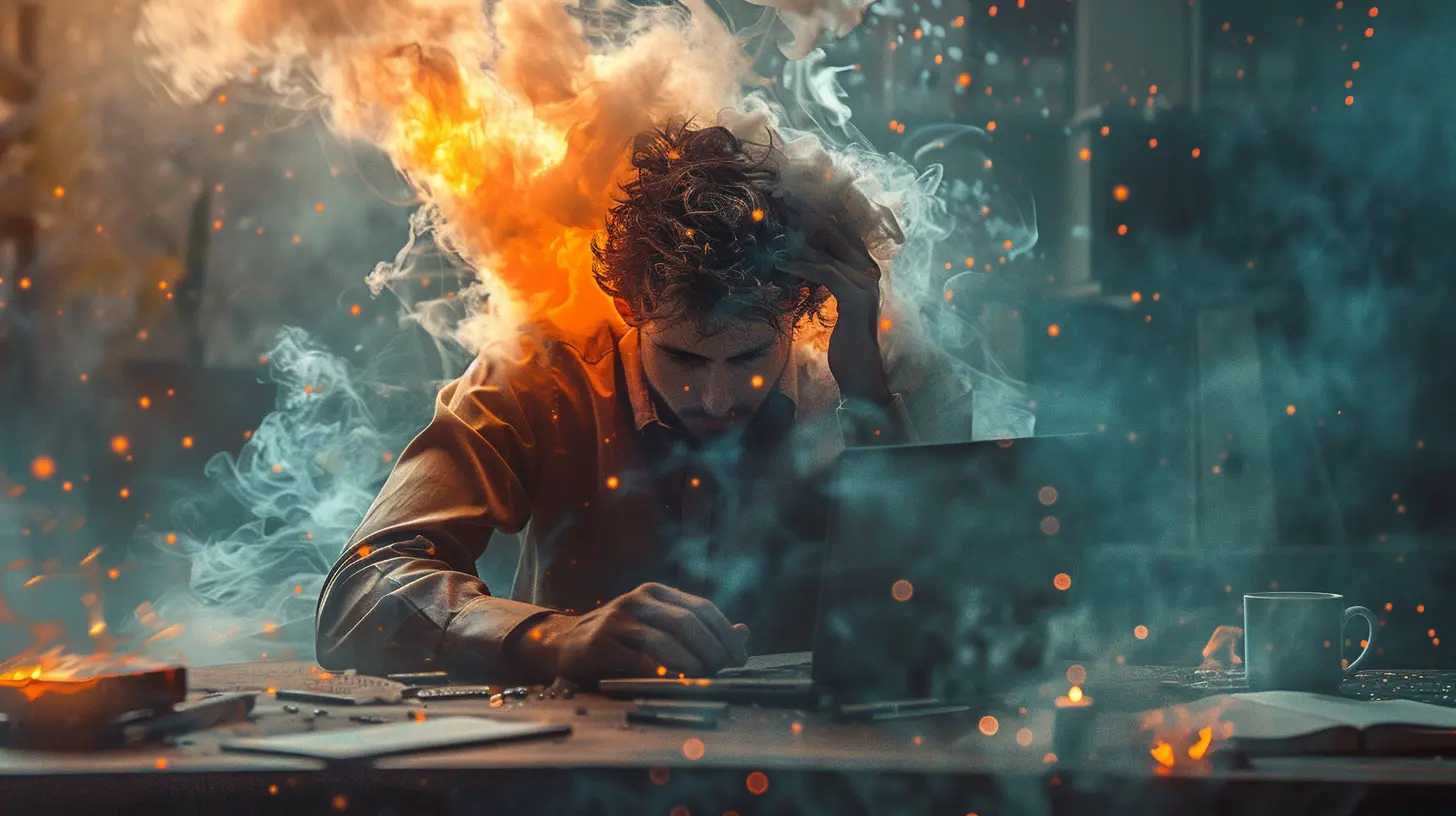
What is Burnout?
Before we get into the nitty-gritty of how burnout impacts creativity and problem-solving, let’s first get a clear understanding of what burnout actually is.Burnout is a state of chronic physical and emotional exhaustion, often caused by prolonged stress. It’s not just “having a bad day” or feeling tired after a tough week. It’s a deeper, more persistent feeling of being drained, both physically and mentally. Burnout doesn’t just happen overnight; it builds up over time, usually due to long-term stressors like work pressure, personal responsibilities, or even social obligations.
Burnout is typically characterized by three main symptoms:
1. Emotional exhaustion – Feeling completely drained and unable to cope.
2. Depersonalization – Developing a cynical attitude toward your job or tasks.
3. Reduced sense of accomplishment – Feeling like no matter what you do, it’s not enough.
Now, let’s explore how these symptoms can take a toll on your creative thinking and problem-solving skills.
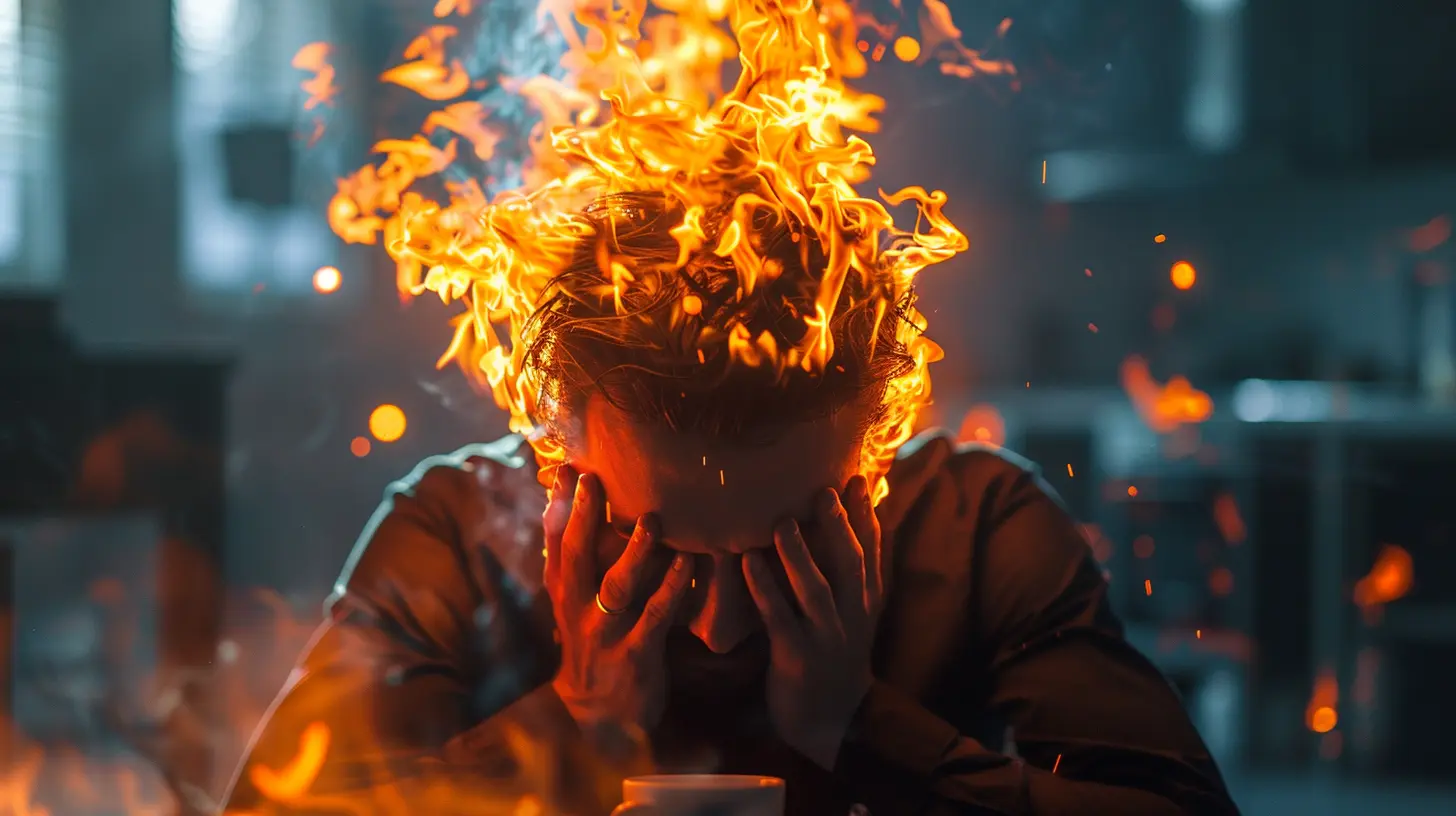
The Relationship Between Burnout and Creativity
1. Mental Exhaustion Stifles Creative Flow
Creativity comes from a place of mental freedom and space. When you’re mentally exhausted, it’s like trying to paint with an empty palette. You can’t create something new when your brain is too tired to function properly.Burnout can lead to mental fog, where even the simplest tasks feel overwhelming. This lack of mental clarity makes it difficult to think outside the box, brainstorm new ideas, or approach problems from different angles. In other words, burnout blocks the very pathways that creativity likes to travel on.
Ever tried to write something or solve a problem after a long, stressful day? It’s like trying to squeeze water from a dry sponge. Your brain just isn’t in a place to be inventive or resourceful.
2. Emotional Drain Limits Passion
Creativity is often fueled by passion and enthusiasm. When you're burned out, these feelings are nowhere to be found. Instead, you might feel detached, indifferent, or even resentful toward the tasks you once enjoyed.Without that emotional drive, it’s hard to find the motivation to be creative. The things that used to inspire you may now feel like chores, and your creative spark may start to fizzle out. Imagine trying to light a fire without any kindling—it’s nearly impossible.
3. Tunnel Vision Kills Innovation
Burnout often leads to a kind of tunnel vision, where you’re so focused on survival mode that you can’t see the bigger picture. You become fixated on just getting through the day or meeting deadlines, rather than thinking creatively or strategically about how to solve problems.Innovation requires flexibility. You need to be able to see a problem from multiple perspectives in order to find creative solutions. But when burnout sets in, your brain tends to default to automatic, black-and-white thinking. You lose the ability to think creatively or come up with out-of-the-box solutions.
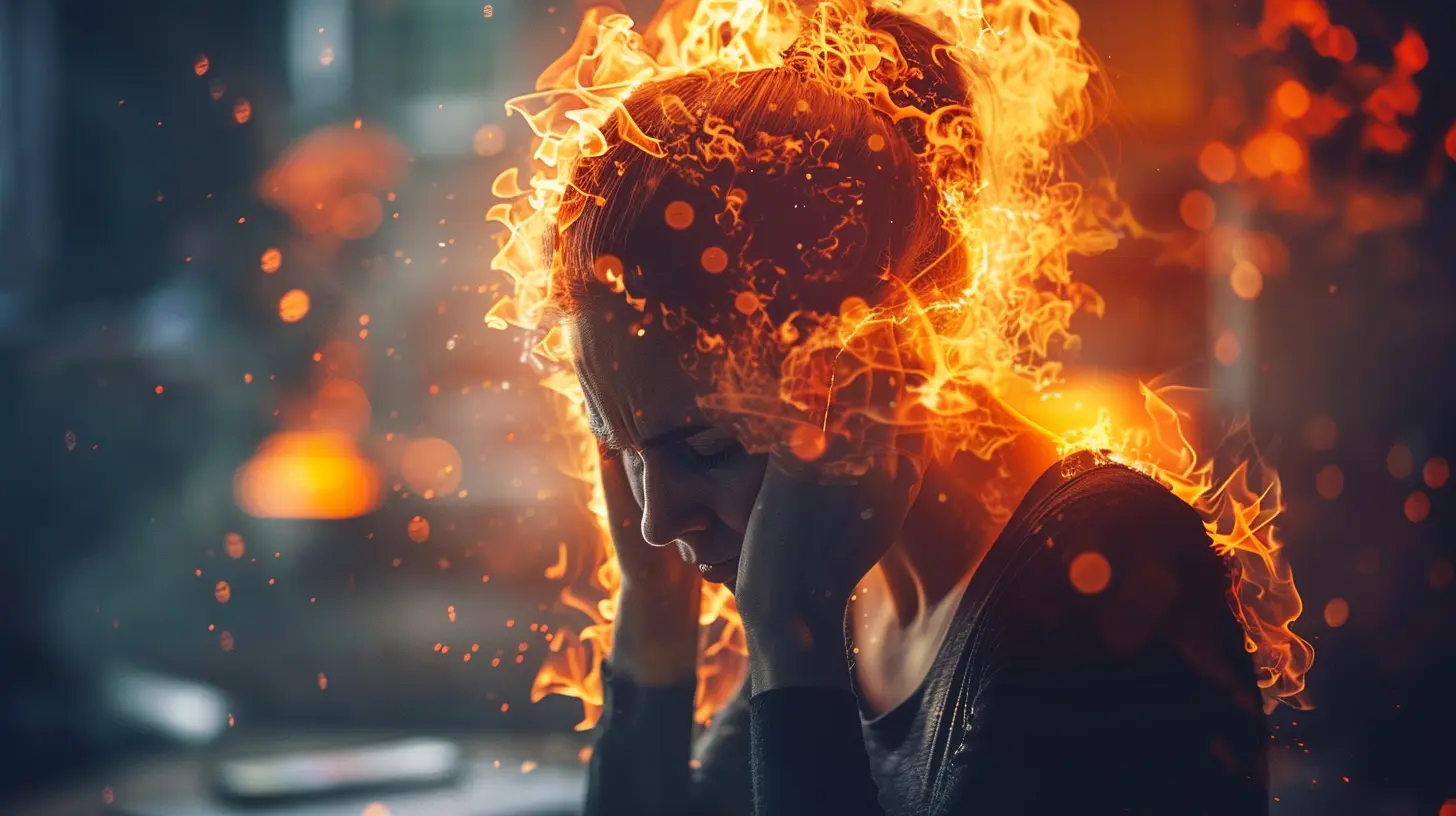
How Burnout Affects Problem-Solving Skills
1. Impaired Cognitive Function
Problem-solving is a cognitive task that requires clear thinking and concentration. When you’re burned out, your cognitive abilities take a hit. You may struggle to focus, make decisions, or even remember important details. This mental fog can make solving even simple problems feel like an uphill battle.Think of your brain as a computer. When it’s overloaded with too many tasks, it slows down, freezes, or even crashes. Burnout is similar in that it overloads your brain's processing power, making it harder to work through problems efficiently.
2. Decision Fatigue
Burnout often leads to decision fatigue, which is the deteriorating quality of decisions made by an individual after a long session of decision-making. When you're emotionally and mentally drained, even small decisions can feel monumental. Instead of weighing options or thinking critically about solutions, you may resort to quick fixes or avoid making decisions altogether.In problem-solving, this can be detrimental. You end up choosing the easiest or most obvious solution without fully considering whether it’s the best one. Your brain is too tired to evaluate alternative solutions or think critically, so you default to the path of least resistance.
3. Increased Stress Levels
Burnout and stress go hand-in-hand. When you're burned out, your stress levels are typically through the roof. And here’s the kicker: stress actually messes with your brain's ability to solve problems effectively.High levels of stress trigger your “fight or flight” response, which is great if you’re running from a bear but not so great when you’re trying to solve a complex problem. In survival mode, your brain focuses on short-term solutions to immediate threats, rather than long-term strategic thinking. This makes it difficult to approach problems with a clear, calm mind.

The Cycle of Burnout and Reduced Creativity/Problem-Solving
Here’s the tricky part: burnout and reduced creativity/problem-solving often form a vicious cycle. You get burned out, which makes it harder to be creative or solve problems. Then, when you're unable to come up with solutions or creative ideas, you feel even more stressed and overwhelmed, which leads to even more burnout. It’s a downward spiral that can be hard to break out of.How to Combat Burnout and Reignite Creativity and Problem-Solving
So, now that we know how burnout affects creativity and problem-solving, how do we combat it? Here are some strategies to help you break the cycle and get back to your creative, problem-solving self.1. Take Breaks
This might sound obvious, but it’s often the simplest solutions that are the most effective. Regular breaks allow your brain to reset and recharge. When you’re constantly pushing yourself without pausing, you’re draining your mental resources. Taking even a short break can help you regain focus and come back to tasks with a fresh perspective.2. Practice Mindfulness and Meditation
Mindfulness and meditation are great tools for reducing stress and increasing mental clarity. By taking just a few minutes each day to focus on your breath and center yourself, you can reduce feelings of burnout and improve your ability to think creatively and solve problems.3. Set Boundaries
One of the leading causes of burnout is the inability to set and maintain healthy boundaries. If you’re constantly saying “yes” to every request or working late into the night, you’re setting yourself up for burnout. Learn to say “no” when necessary and set clear boundaries that protect your time and energy.4. Engage in Creative Activities
Sometimes, the best way to reignite your creativity is to engage in creative activities that have nothing to do with work. Whether it’s painting, writing, dancing, or cooking, find something that allows you to express yourself creatively without the pressure of deadlines or expectations.5. Get Enough Sleep
Sleep is crucial for cognitive function and mental well-being. Without enough sleep, your brain simply can’t function at its best. Aim for 7-9 hours of quality sleep each night to help reduce burnout and improve both creativity and problem-solving abilities.6. Seek Support
If you’re feeling burned out, don’t be afraid to reach out for support. Whether it’s talking to a friend, seeking therapy, or even just venting to a co-worker, sharing your feelings can help alleviate the emotional burden of burnout.
Conclusion
Burnout is more than just feeling tired; it’s a state of chronic stress that can severely impair your creativity and problem-solving abilities. When you're burned out, your brain is in survival mode, making it difficult to think clearly, come up with new ideas, or solve complex problems. But the good news is that burnout is reversible. By taking steps to reduce stress, set boundaries, and engage in self-care, you can reignite your creativity and get back to solving problems with a fresh, clear mind.So, the next time you feel that fog of burnout creeping in, remember: it’s not a sign of weakness or failure. It’s a signal from your brain and body that you need to hit the pause button and recharge.
all images in this post were generated using AI tools
Category:
BurnoutAuthor:

Jenna Richardson
Discussion
rate this article
12 comments
Zevonis Thornton
Burnout stifles the mind’s innate creativity, transforming vibrant ideas into shadows. In this state, problem-solving becomes an arduous task, as exhaustion dims the light of innovation.
February 9, 2025 at 6:04 PM

Jenna Richardson
Absolutely, burnout can severely hinder creativity and problem-solving by draining our mental energy and dulling our innovative edge. Prioritizing self-care and recovery is essential to rekindle that creative spark.
Gianna Robinson
Burnout isn’t just a buzzword; it’s the creativity thief lurking in the shadows. If your mind’s fried, no amount of caffeine will spark those genius ideas!
January 30, 2025 at 4:05 PM

Jenna Richardson
Absolutely! Burnout stifles creativity by exhausting mental resources, making it difficult to generate innovative ideas. Prioritizing self-care is essential for nurturing our creative potential.
Calyx Campbell
This is a vital topic—thank you for shedding light on it!
January 26, 2025 at 5:47 PM

Jenna Richardson
Thank you for your appreciation! I'm glad you find the topic important.
Zephyrine Hudson
Great insights! Understanding the impact of burnout on creativity is crucial for fostering mental well-being.
January 21, 2025 at 4:30 PM

Jenna Richardson
Thank you! I'm glad you found the insights valuable. Addressing burnout is key to unlocking our creative potential and enhancing problem-solving abilities.
Jordan White
Oh sure, because nothing sparks creativity like staring blankly at a wall in existential crisis. What a genius idea!
January 17, 2025 at 3:54 AM

Jenna Richardson
I appreciate your perspective! While it may seem counterintuitive, sometimes taking a step back can lead to unexpected insights.
Liora Marks
Burnout isn't just a mood killer; it’s a creativity assassin! If your brain feels more like a foggy day than a bright idea factory, it's time for a reboot. Remember, even geniuses need a break to think outside the box!
January 8, 2025 at 3:24 PM

Jenna Richardson
Absolutely! Burnout stifles creativity and problem-solving, making downtime essential for rejuvenation and innovative thinking. Taking breaks can ignite fresh ideas!
Melina Chapman
This article insightfully highlights the critical impact of burnout on creativity and problem-solving. Understanding these effects can help individuals prioritize mental well-being, fostering a healthier environment that nurtures innovation and effective decision-making.
December 30, 2024 at 4:14 PM

Jenna Richardson
Thank you for your thoughtful comment! I'm glad you found the insights on burnout's impact on creativity and problem-solving valuable. Prioritizing mental well-being is indeed crucial for fostering innovation.
Zadie Wright
Thank you for this insightful article! It's crucial to recognize how burnout can stifle creativity and problem-solving. Prioritizing mental well-being is essential for fostering innovative thinking and effective solutions.
December 21, 2024 at 4:26 PM

Jenna Richardson
Thank you for your thoughtful comment! I'm glad you found the article insightful—prioritizing mental well-being is indeed vital for nurturing creativity and problem-solving.
Diana Martinez
Burnout stifles creativity, reducing innovative problem-solving capabilities significantly. Insightful read!
December 14, 2024 at 4:30 PM

Jenna Richardson
Thank you! I'm glad you found the article insightful. Burnout indeed has a profound impact on creativity and problem-solving.
Zelda McLean
This article beautifully captures the struggle; understanding burnout is crucial for healing creativity.
December 11, 2024 at 4:41 PM

Jenna Richardson
Thank you! I'm glad you resonated with the article. Understanding burnout truly is key to nurturing our creativity.
Arwenia Benton
Revive your spark, reclaim creativity!
December 10, 2024 at 5:33 PM

Jenna Richardson
Thank you! Reigniting that spark is essential for overcoming burnout and unlocking creativity.
Kenzie Hardy
Burnout stifles creativity and problem-solving by depleting mental resources, diminishing motivation, and impairing cognitive flexibility.
December 10, 2024 at 5:25 AM

Jenna Richardson
Absolutely! Burnout significantly hinders our creative and problem-solving abilities by draining mental energy and reducing motivation, ultimately leading to a less flexible mindset.
MORE POSTS

Breaking the Cycle: Overcoming Addiction with Cognitive Behavioral Therapy
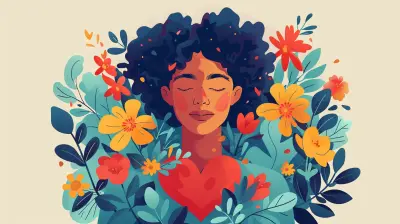
How to Use Self-Compassion as a Form of Emotional Support
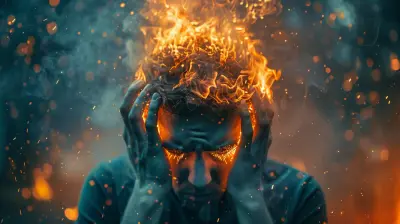
Are You Burned Out or Just Stressed? How to Tell the Difference
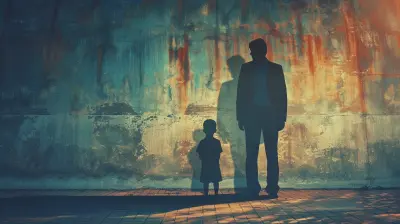
The Importance of Positive Reinforcement in Parenting
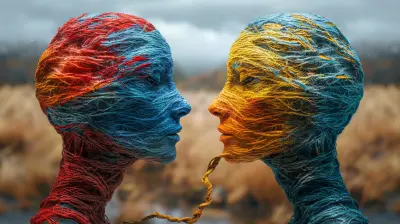
The Interplay Between Self-Concept and Social Identity

The Challenges of Bipolar Disorder and Substance Abuse
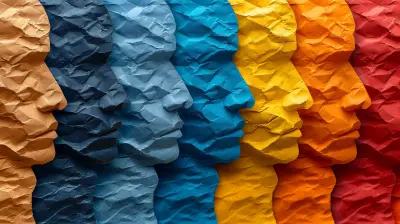
The Science of First Impressions: How We Judge and Are Judged

The Impact of Addiction on Relationships and How to Rebuild Trust